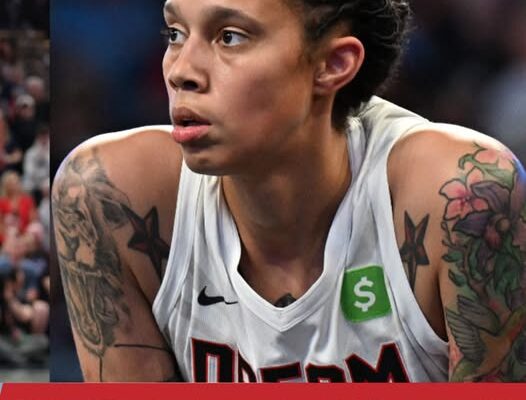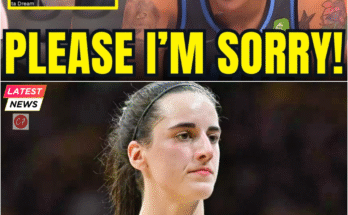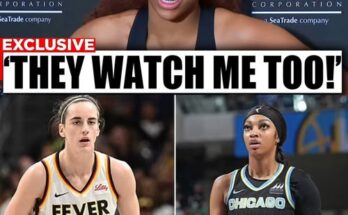The WNBA Faces Backlash Over Alleged Racial Remark and Treatment of Caitlin Clark
The WNBA is currently under intense scrutiny following an incident involving veteran player Brittney Griner and rising star Caitlin Clark. During a recent game between the Indiana Fever and the Atlanta Dream, Griner fouled out in the fourth quarter and was caught on video allegedly mouthing the words “effing white girl.” While the exact phrase is still debated, the footage has gone viral, fueling outrage across social media and sports communities.

This incident comes amid growing concerns about how Clark has been treated since joining the WNBA. Clark, who has brought unprecedented attention and revenue to the league, has found herself frequently targeted both on and off the court. Critics argue that her treatment has been shaped more by resentment and bias than by legitimate basketball rivalries.
Many are questioning why the league, which has aggressively promoted diversity and respect, has remained silent on what appears to be a racially charged outburst. While some claim Griner said “effing trash” or “what a whack call,” others insist the footage clearly shows her using language that would be condemned under any other professional setting.
The controversy highlights deeper issues within the WNBA. Clark has been responsible for record-breaking attendance, jersey sales, and television ratings. Despite this, she has been subject to repeated physical and verbal targeting. Incidents involving players like Angel Reese and now Brittney Griner raise the question: Why is the league not protecting its most marketable and influential player?
The double standard is stark. When Clark is involved in even minor altercations, disciplinary action is swift and symmetrical—fines handed to all parties equally, regardless of context. Yet when the abuse comes at her, the league often looks the other way, failing to set boundaries or enforce consequences.
Some fans and analysts argue that the hostility toward Clark is rooted in more than just competition. They point out the racial dynamics at play: a predominantly Black league reacting to a white star who has achieved immense popularity. Clark’s entry has shifted the league’s media landscape, prompting some players and fans to lash out, rather than embrace the growth she brings.
What’s especially frustrating for many is that this tension isn’t simply about race—it’s also about legacy, pride, and change. For years, WNBA players have fought to gain recognition, and Clark’s instant fame can feel like a slight to those who paved the way. But progress doesn’t erase the past; it builds on it.

Rather than see Clark’s success as a threat, players and the league should view it as a shared opportunity. The influx of attention, fans, and sponsors benefits everyone. However, if this wave is met with hostility instead of unity, the WNBA risks squandering the very momentum it desperately needs.
From a business perspective, the league’s silence is baffling. Most organizations would rally around a figure who is driving revenue, engagement, and growth. Instead, the WNBA appears hesitant to upset the status quo, even if that means leaving its star vulnerable to targeted aggression.
If the roles were reversed—if Clark had been caught saying something derogatory toward a Black player—the fallout would be instant and unforgiving. The fact that Griner’s alleged comments are being debated instead of investigated reveals a troubling inconsistency in the league’s values and enforcement.
The WNBA faces a crucial choice: It can either confront these issues directly and uphold its stated principles, or it can continue avoiding uncomfortable conversations that threaten its long-term credibility. Suspending Griner, if the evidence supports it, wouldn’t be about punishing her—it would be about reaffirming standards.
Inaction sends a dangerous message—not just to Clark, but to every player watching. It implies that certain behaviors are tolerated based on who you are or whom they target. That’s not professionalism; it’s favoritism. And it has no place in a league striving for equality and growth.
Ultimately, Caitlin Clark’s arrival should be a unifying moment for women’s basketball. She offers a bridge between the league and a wider audience that includes young fans, families, and first-time viewers. If that bridge is allowed to crumble under hostility and indifference, the league has no one to blame but itself.
The WNBA must act—not for optics, but for the future. Professionalism, respect, and accountability must apply to all players equally. Anything less risks turning the league’s greatest opportunity into its greatest failure.
“Thank you so much for visiting our website! We truly appreciate your time and support. If you find our content helpful or interesting, we kindly ask you to share it with others. Your support means a lot and helps us grow!”



